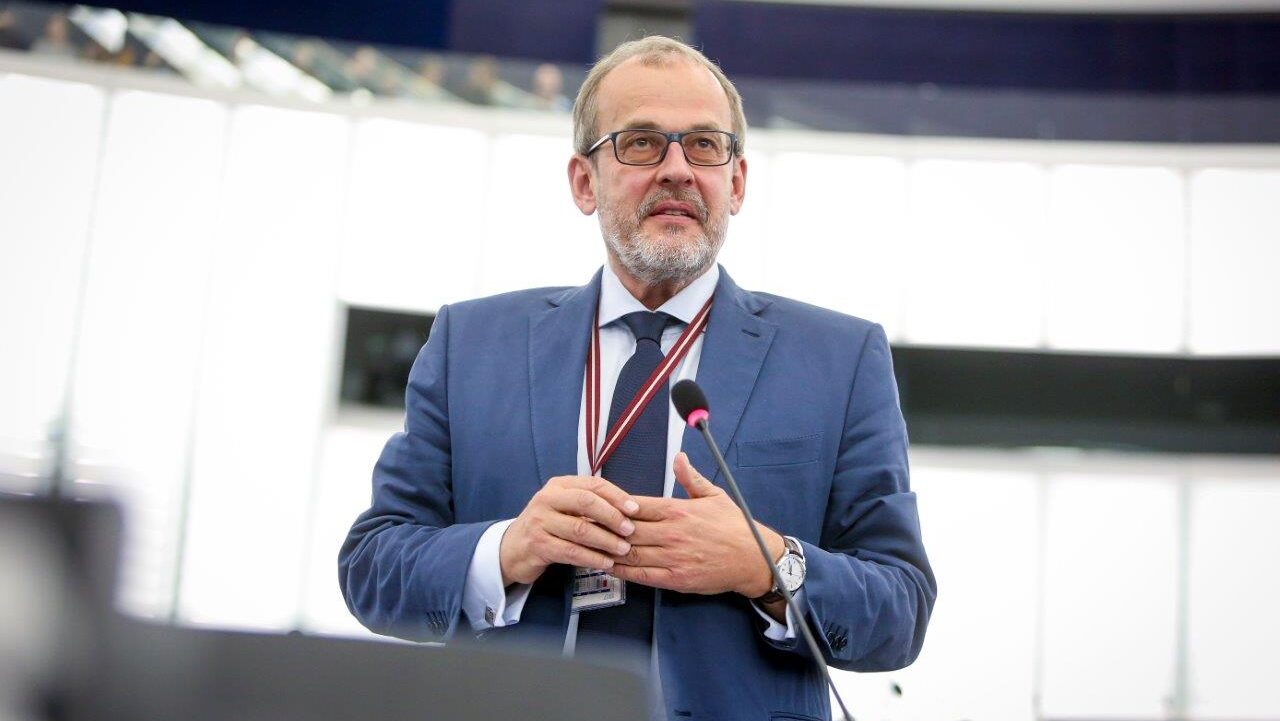
Roberts Zīle, Latvian Minister of Finance from 1997 to 1998, holds a doctorate in economics from the Latvian University of Life Sciences and Technologies. Elected to the European Parliament for the first time in 2004, he became the first Baltic politician to be elected Vice-President of the European Parliament. Head of the Latvian delegation in Brussels, he was re-elected Vice-President on 17 July. Zīle is a member of the National Alliance ‘All for Latvia!’—‘For Fatherland and Freedom’/LNNK party (Nacionālā apvienība ‘Visu Latvijai!’—Tēvzemei un Brīvībai/LNNK), which is in the European Conservatives and Reformists (ECR) group.
There has been a shift because the centre of decision-making has become more right-wing than before. This does not mean that there is a shift towards agreement with the Right on all issues. Von der Leyen’s re-election as Commission President was based on a broad agreement with other ideological families, such as the Left and the Greens. But when we think about the legislation that will come out in this new period, I am convinced that there will be a shift to align with the Right on many issues. It will not be a significant shift, but it will be a rational one. The right-wing parties are divided on some issues, like the war in Ukraine, a major geopolitical issue, which is legitimate and why they cannot belong to the same political family, but they agree on many other common points, and this will be reflected in the decisions in Parliament.
The ECR has always tried to exorcise a lot of ‘political demons’ created by our political competitors. I think we have been successful in our policies and we have been able to cooperate in a rational way with members of other parties, and the best proof of this is the secret ballot that has allowed us to get several vice-presidents and different positions in Parliament. We must continue in this direction and seize the opportunity. We have the leadership of Giorgia Meloni, the head of the Italian government. We are implementing our policies and showing that we cannot be branded as extremists. But we know that ‘political demons’ will continue to be used against us.
Of course, our intention is not to create a ‘brotherhood’ with the EPP, because we have clear political differences. But it is possible to collaborate on some issues, just as it is possible to collaborate with other right-wing forces and even with other political families, such as the Liberals. This is normal; in a legislature you have to be influential to be successful, you have to cooperate to get your ideas through. In particular, we want to push policies on the problems of immigration and security, in relation to Russia’s aggressions.
In the last parliamentary term, the Parliament finally started to take these situations seriously. For example, we have the case of Tatjana Ždanoka, who, according to our legislation, was barred from standing in the Latvian national elections for four years, but continued to work as an MEP. In the end, several journalists found information suggesting that she was a spy in the service of Russia. This is very serious. Unfortunately, there have been other cases of Russian influence and I fear that there will be more after listening to some speeches and seeing certain situations in Strasbourg in mid-July.
Yes; we have experienced the problem on our common border with Belarus and we have applied a very strict return policy, giving only the option of entry and applying for some kind of asylum status in certain cases. The problem is not over and, especially in the summer, we suffer organised attacks by waves of illegals on our border. Of course, we have not been idle and we have strengthened the border considerably in the last two years.
We have been talking about this issue since 2015, with the massive arrival of migrants from the Mediterranean to the Balkans, an event in which there was already a significant hybrid warfare factor. The arrivals from Belarus, which started two years ago, are clearly directed by the Kremlin. We have to have a strong policy of controlling our external borders and understand that there is not only a humanitarian element, but that illegal immigration is being used as a weapon of hybrid warfare. I think the example of the Polish-Lithuanian-Latvian border can be very useful for Mediterranean countries like Spain.
From my point of view, I think that Ukraine should be supported as much as possible. At the level of the European Parliament, I think we have been successful, and we want to continue this line in this new legislature. We have also worked to convince prime ministers and foreign ministers to give Ukraine candidate status and to start negotiations. In the future we will continue to push for greater cooperation and to start the process of union with the European Union. But legally we cannot do anything in the military field; that is up to the member states.
I would like to see the member states that have provided arms allow Ukraine to use them against targets inside Russia, because every time Russia attacks civilian targets in Ukraine and the Ukrainians are not allowed to respond against those military targets, Russia is allowed to continue to do so, and that is not very humanitarian. Ukraine has to do this to defend its territory and its citizens, not to attack Russian civilians. Latvian and other journalists covering the operations in Kursk are not showing us pictures like those from Bucha or Irpin—there is nothing like that from Ukrainian soldiers. Even the Russians living there understand that the Ukrainians have not come to kill them. But I am a realist, and I understand that there are several Western democracies that are under pressure from their societies and public opinion, and that is why they are so reluctant to arm Ukraine.
